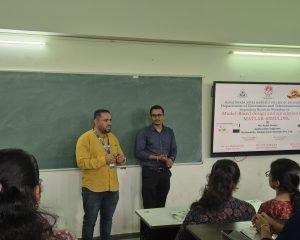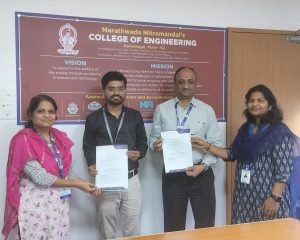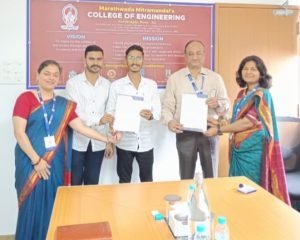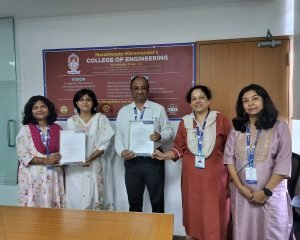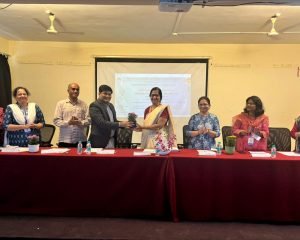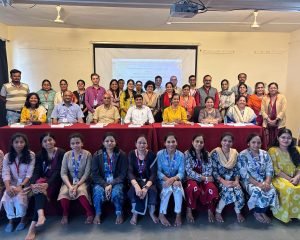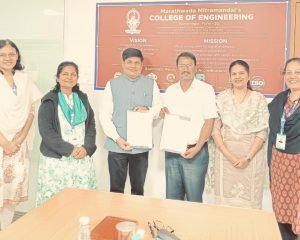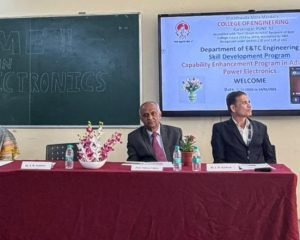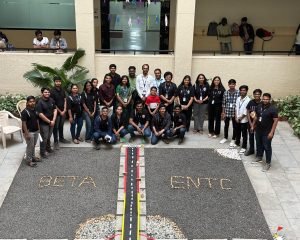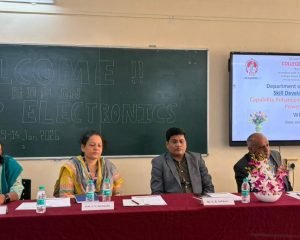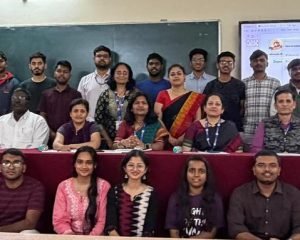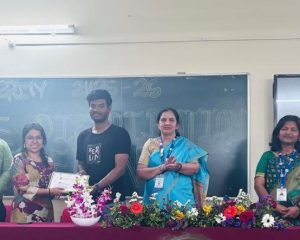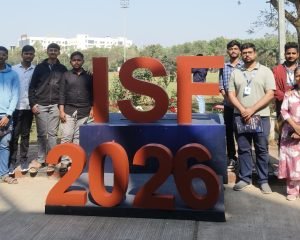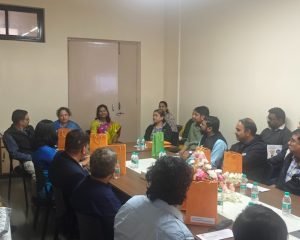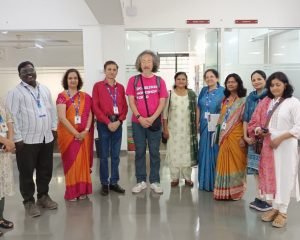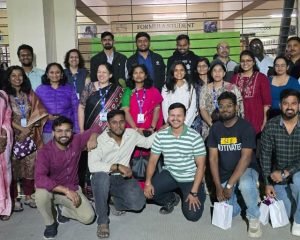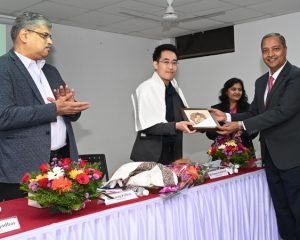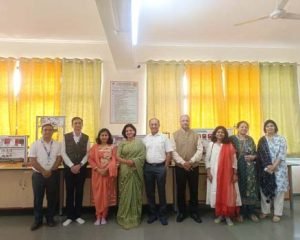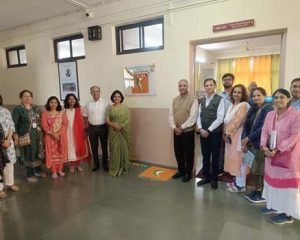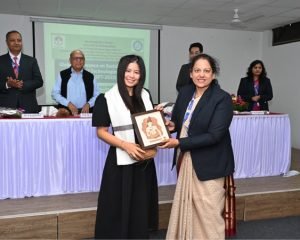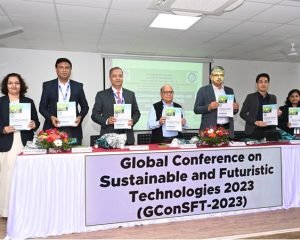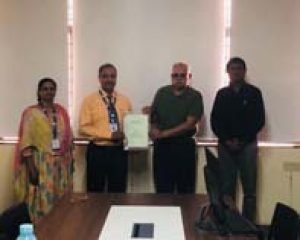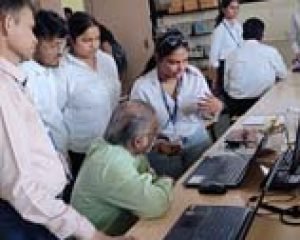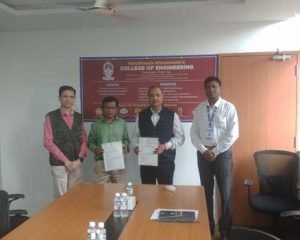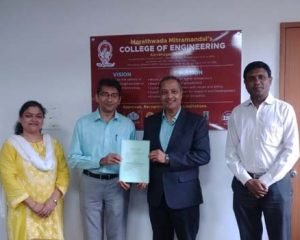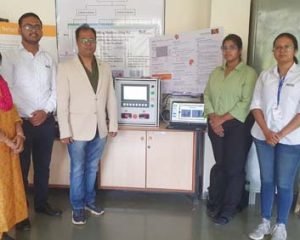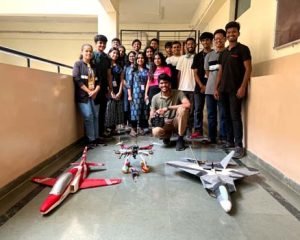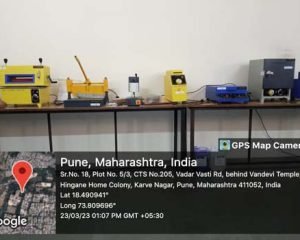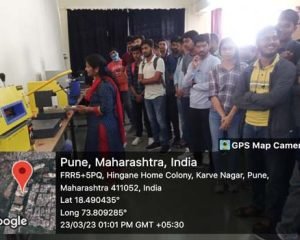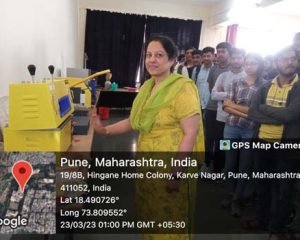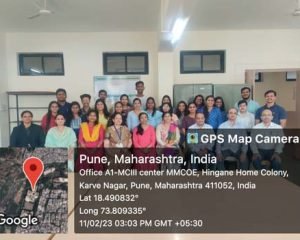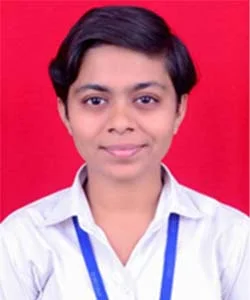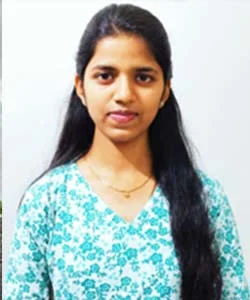Electronics and Telecommunication Engineering
Home » UG Programme » E & TC » About Department
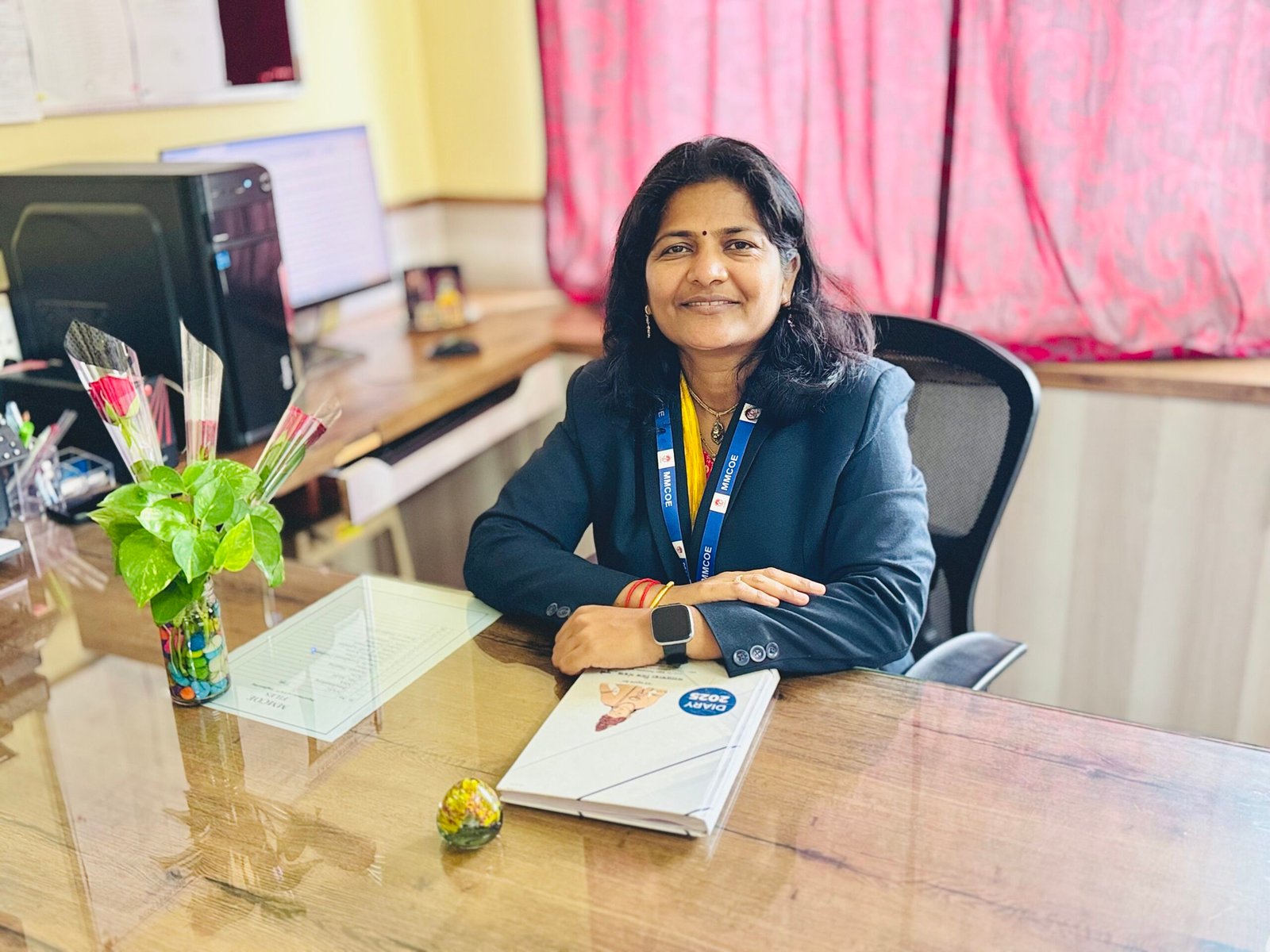
Head of Department of Electronics and Telecommunication Engineering
The Department of Electronics and Telecommunication (E&TC) Engineering at MMCOE is a dynamic center of academic excellence, innovation, and technical advancement. Established in 2006 with an initial intake of 60 students, the department has steadily expanded and now offers 180 seats for the B.Tech. In 2024, the department further advanced its academics by launching an M.Tech program in VLSI & Embedded Systems with an intake of 6 students. As an Autonomous Institute affiliated with Savitribai Phule Pune University (SPPU), MMCOE continuously updates its curriculum to stay aligned with the latest technological developments and industry needs.
The E&TC department is driven by a team of experienced and dedicated faculty members who nurture students not only academically but also in their holistic development. With a strong mentorship system through class teachers and teacherhhh-guardians, every student receives personalized academic guidance and support.
To stay ahead in today’s fast-evolving technological era, the E&TC department is equipped with state-of-the-art laboratories and modern infrastructure. The department fosters strong industry-institute interaction through collaborative projects, expert sessions, and internships, ensuring students are aligned with real-world demands. It also offers skill development programs in cutting-edge technologies such as Embedded Systems, VLSI Design, Signal Processing, and Advanced Communication Systems.
Beyond academics, the E&TC department actively promotes leadership, innovation, and teamwork through a wide range of extracurricular activities. Students are encouraged to participate in dynamic, student-driven clubs such as the BETA Student Association, IETE Student Forum, Robotics Club, RC Drone Club, Electronics Hobby Club, and the VLSI & Embedded Systems Club. These platforms provide opportunities to explore emerging technologies, organize technical events, and enhance soft skills in a collaborative environment.The department fosters academic excellence and innovation through its Centres of Excellence in Embedded Systems & Signal Processing, promoting hands-on learning and industry collaboration.
Accredited by the National Board of Accreditation (NBA), the department stands as a testament to quality technical education, industry readiness, and a commitment to producing future-ready engineers. With a perfect blend of rigorous academics, cutting-edge research, and vibrant student life, the E&TC department at MMCOE empowers students to thrive in the ever-evolving world of Electronics and Telecommunication.
Department Highlights
- Centre of Excellence for Advanced Embedded Systems & Signal Processing
- Centre of Excellence for High Performance Computing
- Strong Industry Connect
- Experienced and well-qualified faculty
- Nodal Center for IIT Bombay's Virtual Labs Initiative
- Fully equipped hardware and software laboratories
- Contemporary classrooms fitted with audio-visual aids and Wi-Fi connectivity
- Ample placement and internship opportunities
- Progressive academic practices
- Dynamic Student Technical Clubs, Active Student Associations, and Engaged Student Chapters
- Supportive Teacher-Guardian system for better student, teacher, and parent connection
- Frequent industrial visits, workshops, technical events, guest lectures, seminars, and extracurricular activities
- Expert mentors for enhancing English communication and foreign language proficiency
- Specially designed Skill Development Programs
- Well-stocked department library
Vision
To cultivate globally competent Electronics and Telecommunication Engineers for developing sustainable solutions
Mission
- M1: To empower students with foundational and emerging technologies in Electronics and Telecommunication Engineering, fostering global competencies.
- IM2: To foster research and collaborative learning ecosystem that encourages entrepreneurship, sustainable development and societal well-being.
- M3: To inculcate ethical values, leadership, adaptability, and a lifelong learnability in a diverse, global engineering.
Graduates from our program will:
- PEO1: Graduates will excel in their professional careers by applying cutting-edge technologies in Electronics and Telecommunication Engineering
- PEO2: Graduates will be globally aware, adaptive, and capable of solving real-world problems through multidisciplinary and innovative thinking.
- PEO3: Graduates will evolve into professionals with strong communication, teamwork, leadership, and ethical decision-making capabilities with societal and environmental awareness.
- WK1: A systematic, theory-based understanding of the natural sciences applicable to the discipline and awareness of relevant social sciences.
- WK2: Conceptually-based mathematics, numerical analysis, data analysis, statistics and formal aspects of computer and information science to support detailed analysis and modelling applicable to the discipline.
- WK3: A systematic, theory-based formulation of engineering fundamentals required in the engineering discipline.
- WK4: Engineering specialist knowledge that provides theoretical frameworks and bodies of knowledge for the accepted practice areas in the engineering discipline; much is at the forefront of the discipline.
- WK5: Knowledge, including efficient resource use, environmental impacts, whole-life cost, re-use of resources, net zero carbon, and similar concepts, that supports engineering design and operations in a practice area.
- WK6: Knowledge of engineering practice (technology) in the practice areas in the engineering discipline.
- WK7: Knowledge of the role of engineering in society and identified issues in engineering practice in the discipline, such as the professional responsibility of an engineer to public safety and sustainable development.
- WK8: Engagement with selected knowledge in the current research literature of the discipline, awareness of the power of critical thinking and creative approaches to evaluate emerging issues.
- WK9: Ethics, inclusive behavior and conduct. Knowledge of professional ethics, responsibilities, and norms of engineering practice. Awareness of the need for diversity by reason of ethnicity, gender, age, physical ability etc. with mutual understanding and respect, and of inclusive attitudes.
A Graduate of the Computer Engineering Program will be able to
PO1: Engineering Knowledge: Apply knowledge of mathematics, natural science, computing, engineering fundamentals and an engineering specialization as specified in (WK1 to WK4) respectively to develop the solution of complex engineering problems.
PO2: Problem Analysis: Identify, formulate, review research literature and analyze complex engineering problems reaching substantiated conclusions with consideration for sustainable development. (WK1 to WK4)
PO3: Design/Development of Solutions: Design creative solutions for complex engineering problems and design/develop systems/components/processes to meet identified needs with consideration for the public health and safety, whole-life cost, net zero carbon, culture, society and environment as required. (WK5)
PO4: Conduct Investigations of Complex Problems: Conduct investigations of complex engineering problems using research-based knowledge including design of experiments, modelling, analysis & interpretation of data to provide valid conclusions. (WK8).
PO5: Engineering Tool Usage: Create, select and apply appropriate techniques, resources and modern engineering & IT tools, including prediction and modelling recognizing their limitations to solve complex engineering problems. (WK2 and WK6)
PO6: The Engineer and The World: Analyze and evaluate societal and environmental aspects while solving complex engineering problems for its impact on sustainability with reference to economy, health, safety, legal framework, culture and environment. (WK1, WK5, and WK7).
PO7: Ethics: Apply ethical principles and commit to professional ethics, human values, diversity and inclusion; adhere to national & international laws. (WK9)
PO8: Individual and Collaborative Team work: Function effectively as an individual, and as a member or leader in diverse/multi-disciplinary teams.
PO9: Communication: Communicate effectively and inclusively within the engineering community and society at large, such as being able to comprehend and write effective reports and design documentation, make effective presentations considering cultural, language, and learning differences
PO10: Project Management and Finance: Apply knowledge and understanding of engineering management principles and economic decision-making and apply these to one’s own work, as a member and leader in a team, and to manage projects and in multidisciplinary environments.
PO11: Life-Long Learning: Recognize the need for, and have the preparation and ability for i) independent and life-long learning ii) adaptability to new and emerging technologies and iii) critical thinking in the broadest context of technological change. (WK8)
Graduates from our program will:
- PSO1: To apply principles of Embedded Systems, VLSI, Communication, and Automation using modern hardware and software tools to develop effective E&TC solutions.
PSO2: To design and develop multidisciplinary, innovative, sustainable solutions through project-based learning to address industrial, societal, and environmental needs.

